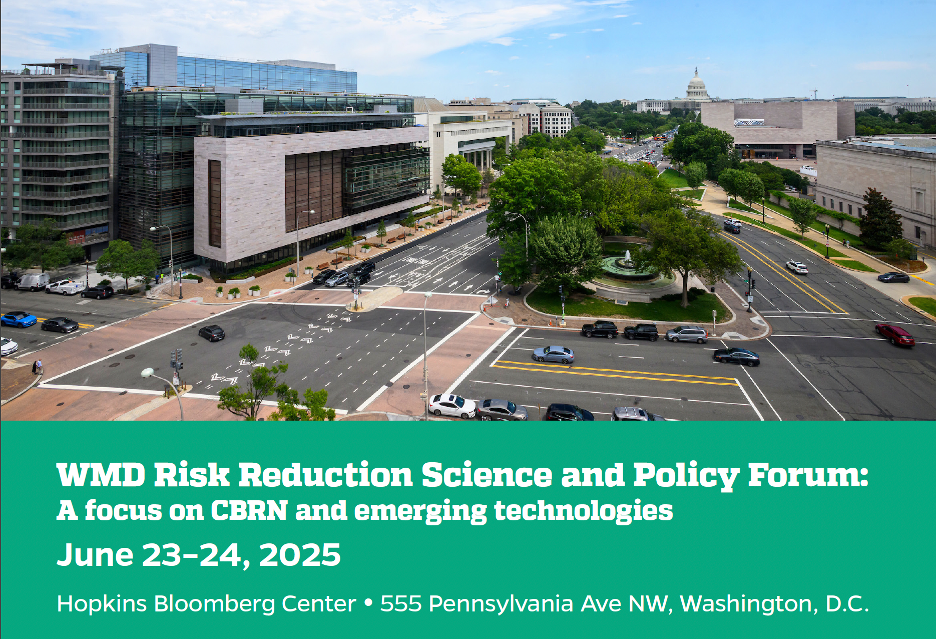Starts in
June 23, 2025
All Day
June 23-24, 2025
At a time when the potential use of chemical, biological, radiological, and nuclear weapons is of increasing concern, efforts to reduce risk take on increased urgency. Basic and applied scientific research programs have important roles to play in facilitating risk reduction and nonproliferation efforts, for example through the development of improved technologies to verify compliance with negotiated agreements.
This forum, hosted by Johns Hopkins University, will bring together science and policy experts. Topics include verification and monitoring, counter-WMD technologies, and mitigation of WMD effects, and role of emerging technologies such as artificial intelligence in risk reduction. The forum will feature plenary talks by subject matter experts and policymakers, panel discussions, and extensive opportunities to discuss the importance of scientific advances in support of risk reduction policy.
The Risk Reduction Science and Policy Forum is offered by Johns Hopkins University, in collaboration with the Materials Science in Extreme Dynamic Environments University Research Alliance (MSEE URA), which is supported by the Defense Threat Reduction Agency.
ORGANIZING COMMITTEE:
- Prof. Gigi Gronvall, Sr. Scholar, Center for Health Security, Bloomberg School of Public Health
- Prof. Todd Hufnagel, Assoc. Director, MSEE URA, Whiting School of Engineering
- Prof. Jane Vaynman, Asst. Prof. of Strategic Studies, School of Advanced International Studies
- Prof. Tim Weihs, Director, MSEE URA, Whiting School of Engineering
VENUE:
The Policy Forum will take place at the Hopkins Bloomberg Center in Washington, D.C. 555 Pennsylvania Ave NW, Washington, D.C. 20001.
ADDITIONAL DETAILS COMING SOON
